Rwanda
Rwanda has struck a deal with Britain to receive some asylum-seekers in the East African country.
The move has been criticised by UK opposition politicians and refugee groups as inhumane and unworkable.
Speaking in Rwanda's capital, Patel said resettled people would be given support for up to five years, including training, accommodation and health care, "so they can resettle and thrive".
Patel visited Kigali to sign what the two countries call an “economic development partnership.”
The plan will see some people who arrive in Britain in small boats across the English Channel picked up by the UK government and flown 6,400 kilometres to Rwanda, apparently for good.
Rwanda confirmed the deal in a statement, but neither government provided full details of how it would work.
Speaking at a joint news conference with Patel, Rwandan Minister of Foreign Affairs Vincent Biruta, said the deal was giving migrants "the chance to make new lives in our country as full members of our communities."
Biruta added the deal was mutually beneficial and would help Rwanda advance its own development.
"And for those who do not wish to make Rwanda their new home, they will be facilitated to return to their country of origin or settle in other receiving countries," Biruta explained.
Rwanda is the most densely populated nation in Africa, and competition for land and resources there has already fueled decades of ethnic and political tensions that culminated in the 1994 genocide in which more than 800,000 ethnic Tutsi and the Hutus who tried to protect them were killed.
Human rights groups have repeatedly criticized President Paul Kagame’s current government for being repressive.
UK Prime Minister, Boris Johnson, however, insisted that Rwanda had “totally transformed” in the last two decades.
Britain says relocation decisions will not be based on migrants’ country of origin but on whether they used “illegal or dangerous routes” to reach the UK from a safe country such as France.
Not all such arrivals will be considered suitable to be sent to Rwanda; it was unclear what the criteria for making the decisions would be.
Previous policies of sending refugee applicants abroad have been highly controversial.
Israel sent several thousand people to Rwanda and Uganda under a contentious and secretive “voluntary” scheme between 2014 and 2017. Few are believed to have remained there, with many trying to reach Europe.
Migrants have long used northern France as a launching point to reach Britain, either by stowing away in trucks or on ferries or - increasingly since the coronavirus pandemic shut down other routes in 2020 - in dinghies and other small boats organized by smugglers.
More than 28,000 people entered the U.K. on small boats last year, up from 8,500 in 2020.
Dozens have died, including 27 people in November when a single boat capsized.
Steve Valdez-Symonds, refugee director at Amnesty International U.K., said the British government’s “shockingly ill-conceived idea will go far further in inflicting suffering while wasting huge amounts of public money.”
The chief executive of the U.K.-based Refugee Council, Enver Solomon, called it “dangerous, cruel and inhumane.”
Rwandan opposition figure Victoire Ingabire said that her government’s decision to take in migrants was questionable, given that the country is also a source of refugees.
“Rwanda has consistently ranked (as) one of the world’s safest nations, but at the same time consistently a country where its inhabitants are unhappy,” she said.




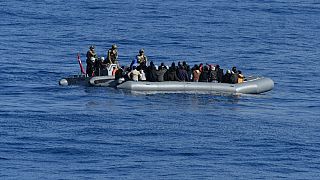
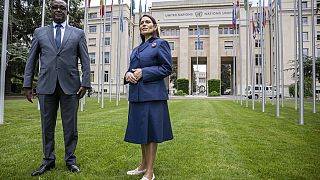
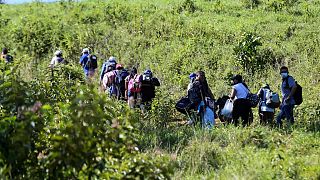

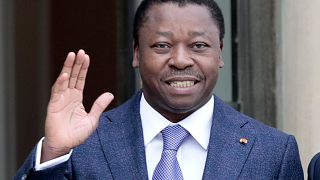
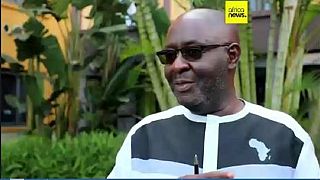



02:26
Mixed feelings in Goma ahead of DR Congo's talks with M23 rebels
01:24
UK PM Keir Starmer slams previous government's Rwanda immigration scheme as "inefficient"
01:15
Burundi accuses Rwanda of plotting attack
Go to video
Rwanda-backed rebels enter mineral-rich town in Congo, defying ceasefire calls
Go to video
Rebels in eastern Congo abducted 130 hospital patients, UN says
06:10
Britain to Impose Sanctions on Rwanda Over Congo Conflict